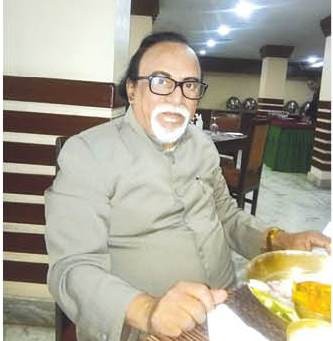Trade union leaders to discuss problems of workers

By Laxman Kafle
Kathmandu, Sept. 24: The two-day session of the Asia-Pacific Regional Conference of the World Federation of Trade Unions (WFTU), scheduled to be held in Kathmandu tomorrow, will come up with a strategy to address the common problems facing the workers in region.
“Different countries have different labour problems. Overall, there is a lot of exploitation of workers. There are undeclared works and working conditions are not good in many places. Young workers are not finding proper employment. And women workers are facing a lot of problems,” said H. Mahadevan, WFTU deputy general secretary.
The trade union leaders from different countries, including Nepal, India, Bangladesh, the Philippines, Vietnam, Sri Lanka, Indonesia, Laos, Malaysia, Iran, Pakistan, Kazakhstan and Cambodia and others will participate in the forum.
Talking to The Rising Nepal, Mahadevan said that the forum would discuss and find common ground to resolve the problems faced by the workers. Many countries have not followed the labour standards of International Labour Organisation (ILO). “They have been neither rectified nor implemented.”
The WFTU deputy general secretary said: “The policy of hire and fire and outsourcing has been applied. With the development of technology, the pattern of working is also changing. In many countries, business is now in the driving seat, corporate agencies recommend the rules and the governments are merely referee in many places, while in many nations the governments are not good referee.”
Multinational corporations are trying to change the old system, leaving a large number of workers unemployed, he said.
“We expect that the Kathmandu declaration will put pressure on the respective governments to solve workers’ problems based on the norms set by the declaration of last conference held in South Africa. We should like to see the rights of workers are established.”
According to the ILO, only 10 per cent of the workers can exercise their collective bargaining power, he said, adding that working conditions such as the safety and health were in very dangerous situation.
In the world today, there are a lot of monopolistic systems - the global monopolist, technological monopolist and financial monopolists. Financial organisations like World Bank and IMF have a greater say in determining the policies of the governments. “They have monopolised the access to natural resources and using for their benefited.”
Labour standards are also changing, he said, adding that the permanent employment has been given away. Even judiciary has given some decisions in support of equal pay for equal work but that is not followed, he added. For example, in India, many organisations are not following decisions of the Supreme Court to pay minimum salaries to the workers, he said. “Foreign direct investment encourages capital-friendly policies, not labour friendly one”
According to him, the issues of migrant workers are critical in Nepal as a large number of them are working abroad. “We want to put certain measures for workers both in the sending countries as well as receiving ones countries to the benefits of the workers.”
The problems of workers particularly in South Asia are common, he said, adding that WFTU would take common strategic to resolve the problems of workers in Asia Pacific. “We do not take political issues of member countries but work to address their common problems.”
Asked about the global labour movement, he noted that it had deviated from their mission to some extent but all the class-based trade unions had similar issues and agenda. “Labour relations, collective bargaining and social securities are the common issues that need to be addressed urgently. We must strive for meeting full employment and retirement benefits of workers.”
“I believe that the government of Nepal is taking efforts to protect the rights of workers whatever manifesto the ruling party had taken to the election.”
Recent News

Do not make expressions casting dout on election: EC
14 Apr, 2022
CM Bhatta says may New Year 2079 BS inspire positive thinking
14 Apr, 2022
Three new cases, 44 recoveries in 24 hours
14 Apr, 2022
689 climbers of 84 teams so far acquire permits for climbing various peaks this spring season
14 Apr, 2022
How the rising cost of living crisis is impacting Nepal
14 Apr, 2022
US military confirms an interstellar meteor collided with Earth
14 Apr, 2022
Valneva Covid vaccine approved for use in UK
14 Apr, 2022
Chair Prachanda highlights need of unity among Maoist, Communist forces
14 Apr, 2022
Ranbir Kapoor and Alia Bhatt: Bollywood toasts star couple on wedding
14 Apr, 2022
President Bhandari confers decorations (Photo Feature)
14 Apr, 2022











